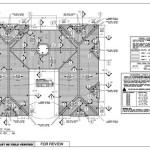How Do I Get Drainage Plans For My Property?
Drainage plans are essential for ensuring the proper drainage of water away from your property. They can help to prevent flooding, erosion, and other water-related problems. If you're considering getting a drainage plan for your property, here's what you need to know.
1. Why Do I Need A Drainage Plan?
There are several reasons why you might need a drainage plan for your property. If you're experiencing any of the following problems, a drainage plan can help:
- Flooding in your yard or basement
- Erosion of your property
- Standing water in your yard
- Wet or boggy areas on your property
- Problems with your septic system
2. How Do I Get A Drainage Plan?
The first step is to contact a qualified civil engineer or land surveyor. They will be able to assess your property and determine if you need a drainage plan. If you do, they will create a plan that outlines the necessary steps to improve the drainage on your property.
3. What Will A Drainage Plan Include?
A drainage plan will typically include the following information:
- A map of your property showing the existing drainage patterns
- A list of the problems that need to be addressed
- A design for a new drainage system
4. How Much Will A Drainage Plan Cost?
The cost of a drainage plan will vary depending on the size and complexity of your property. However, you can expect to pay between $500 and $1,500 for a basic plan.
5. Is A Drainage Plan Worth The Cost?
A drainage plan can be worth the cost if it helps to solve drainage problems on your property. A properly designed drainage system can help to prevent flooding, erosion, and other water-related problems. It can also improve the appearance of your property and make it more enjoyable to use.
6. How Can I Implement A Drainage Plan?
Once you have a drainage plan, you can implement it yourself or hire a contractor to do it for you. If you decide to do it yourself, be sure to follow the instructions in the plan carefully. You may also need to obtain permits from your local government before you start work.
7. How Can I Maintain My Drainage System?
Once your drainage system is installed, it's important to maintain it properly. This includes cleaning out gutters and downspouts, removing debris from drains, and inspecting the system regularly for any problems. By following these tips, you can help to keep your drainage system functioning properly for many years to come.
Residential Drainage Life Of An Architect
Why You Need A Drainage Plan For Your New Home Homes By Howe
How To Obtain Before You Dig Plans
Drainage Layout Responsibility Lanes For Drains
How Do I Find Out Where The Drains Are On My Property Kjc Drainage
As Built Drainage Plan Pipers
Water Drainage Maps
Free Plumbing Drainage Diagram Gillies Group
Drainage Plans For Your Property Christchurch City Council
Water Drainage Maps
Related Posts








